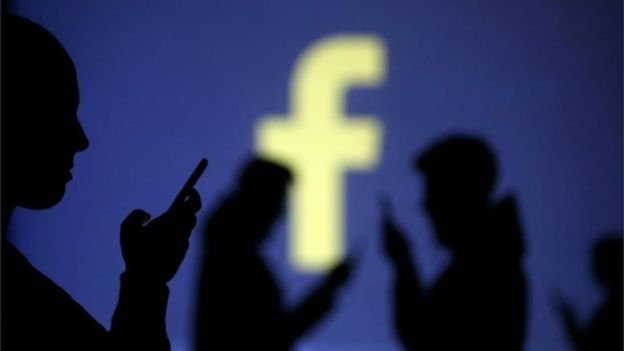
Silicon Valley, we have a problem. Some of the top internet companies have been upset over the past few months because of the spread of false information and the misuse of their users' data.
WhatsApp has been accused in India of helping to foment a wave of lynchings because of lies shared by the tool. Google has announced changes in its algorithms so that fake news no longer stands out in its searches. And the president of Twitter has come out to ask for help to solve problems created by "abuses, harassment, trolls and manipulation by robots and humans." But no company is going through a crisis as serious as Facebook.
The social network has lost $ 100 billion in market value since the beginning of February and is being investigated for allegedly influencing information and false social network profiles about the US election and the exit vote Brexit, with harsh criticism of how data from millions of users were collected and used by Cambridge Analytica's political consultancy.
Orkut Büyükkökten, creator of one of the most successful social networks, argues that "false profiles and news should be banned." "We are getting to the point where we do not believe in anything else we read," says the Turkish engineer in an interview with BBC Brazil.
'Maybe it costs lives': internal communication of strategies of Facebook leaks and constrains company
Rejection of the family, request for marriage and mourning: the interrupted love story of Marielle and Monica
"In real life, if you find that your friend lies all the time, will you want to continue with that friendship?" If you know that your boyfriend is cheating on you, you will end the relationship. allowed someone to post fake content and lie constantly. "
'We are creating an unhappy generation'
He speaks with the property of those who created the site that presented the concept of social network to Brazilians. In the ten years Orkut was on the air, the site had 300 million users worldwide, most of them in Brazil and India, but it lost its relevance and membership until it was blown out by Google in 2014.
The businessman evaluates that his first social network did not fail, but ended up not resisting changes in this market. "It was the first social experience of a lot of people, but access before was mainly by the computer and today, the new generations are multitasking and do everything for the cell phone. Orkut did not meet those needs," he says.
Since 2016, the engineer is leading a new venture, the social network Hello, which he says is a "continuation of the journey" that began with Orkut.

He thinks he's doing it with Hello, which exists only as a mobile app.
One of the main features of the social network is to bring users together in communities about common interests, which generally deal with lighter, controversial themes such as "Lovers of the Series" and "Fans of the 80s", such as those that existed in the Orkut. The site also places users in touch and indicates content based on the top five personal characteristics the user chooses when signing up, such as "photographer," "nude," or "geek."
But Hello is still a long way from Orkut's success: the program has been available in 12 countries and downloaded more than 1 million times, and today it has the majority of users in Brazil. The company does not disclose the total number of active users, a metric that gives the scale of success of such a service.
The social network is also far from the number of users of some of its main competitors, such as Facebook, which has 2.2 billion active users, Instagram with 800 million and Twitter with 3330 million, according to the website Statista .
Over the past two years, the app has received 10,000 app ratings from the Google App Store, of which 4,000 give the social network the highest rating (five stars), but 2,500 are at the other end and give it the lowest rating ( a star). On average, the app has 3.3 stars.
"Great app, but needs tweaking," one user says.
"It was boring and confusing, I had a great expectation, but it's nothing like good old Orkut," another says in a recent review.
According to the company, most of the bad evaluations occurred at the time of the release, when the repercussion above expectations overloaded its servers and created problems for users. "It took us almost two weeks to correct the flaw, and many users rated us poorly. Since then, our grades have been good, but it takes some time to recover on the app store average grade."
balance
As for the dissemination of false information, Orkut argues that social networks should try harder to check facts and prioritize sources of "heavy" information. To do this, they must seek a compromise between technology and human endeavor.
"Before, we relied on newspapers and magazines, because they did research before publishing anything, but checking facts takes time," says Orkut, who uses Facebook, Instagram, WhatsApp and other social networks to see what's missing in these services and find out how to make your best.
"Today, the news happens so fast that the decision about what is displayed to social networking users is done in an automated way, based on algorithms and artificial intelligence. There are no real people checking, and this makes the public be exposed to false news. It takes a balance. "
But how does Hello deal with this problem? Orkut says that users gain a reputation based on positive and negative interactions with other members of the social network. All posts are public, and site community leaders can flag content they consider to be irrelevant or false, which causes it to be scanned by the site staff and deleted when it is judged appropriate.
When there is a serious violation, such as a hateful or pornographic post, the user has their profile analyzed and is punished, ranging from receiving a simple alert to having their account silenced temporarily or deleted.
According Orkut, such measures would prevent false information from spreading unchecked. "Ensuring that a publication is viewed by people with different backgrounds and opinions makes it harder for a lie to spread," says Orkut, who explains that the site has staff to moderate content.
However, Hello has so far been less vulnerable to this type of problem, not only because it is not as popular as other networks, but also because it was only possible to post posts with texts and photos.

But from now on, it will allow links to be shared to other websites and external content, increasing the chances of false information being posted on the social network, which should put pressure on the mechanisms highlighted by Orkut.
Impact on Election
About the Cambridge Analytica scandal, the engineer says he prefers not to comment specifically on how Facebook uses its users' data. "Companies have policies on this, and in this case, these policies were not respected," he says.
"But if such information is passed on to a third party, it is to be expected that those who share it have a moral obligation to monitor and ensure that they are used in the right way. A good solution would be to prevent companies from sharing data without the explicit consent of the user."
In its terms of use, Facebook claims not to sell user information to other companies, but shares raw data - always as samples, without revealing the real identity of the users and only the information posted on the site publicly - with advertising services, measurement and analysis, as well as partners involved in services of "technical infrastructure, measurement of advertising effectiveness and tools, customer service, payments and academic research," which "must adhere to obligations of absolute secrecy."
The company says it has been working in recent years to detect, combat and prevent violations of its rules and to give more control to the user about the information that is shared and how it is used.
Asked how their own social network handles user data, Orkut explains that Hello does not use algorithms to monitor and identify the habits and preferences of its users. "We directly ask users to tell us what their interests are."
He also states that the site does not share this information with other companies, explaining that they are only analyzed by the company itself to improve the site.
Orkut argues that using user data to create personalized advertising may be a good thing, but says that if an ad is made to change political views or affect an election, "a threshold has been exceeded."
"Certainly social networks have the power to impact an election, but we can not say scientifically if they have already managed to change their course. It's not because they see the announcement about a politician that you're going to vote for him," he says.
"It is not guaranteed that it will affect the outcome, but social networks will certainly influence the election this year in Brazil."